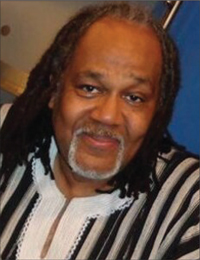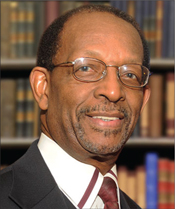Love It Or Leave It? - More Americans would like to ditch America, says poll
By Brian E. Muhammad -Contributing Writer- | Last updated: Jan 29, 2019 - 11:25:13 AMWhat's your opinion on this article?
As the debate rages on about border security, refugees and immigrants entering the United States, a recent poll revealed a record number of Americans has expressed a desire to leave America. A Gallup World Poll brief released in early January asked Americans: “Ideally, if you had the opportunity, would you like to move permanently to another country, or would you prefer to continue living in this country?”
Gallup said under President Donald Trump, 16 percent of people polled said in 2017 and 2018 they would permanently relocate to another country, if they could.
The percentage is significantly higher than previous presidents. During the George W. Bush administration in 2008, 11 percent said they’d go and under Barack Obama, 2009-2016, pollsters found 10 percent of Americans echoed the same sentiment.

Dr. Ray Winbush
|
The U.S. is the top migrant destination and nearly 20 percent of the world’s migrants live in America.
With her mixture of races, cultures and traditions clashing with social and political climates spiraling downward, and widely blamed on the Trump administration, Americans represented in the survey said leaving is a serious option.
Authors of Gallup’s brief wrote: “While Gallup’s World Poll does not ask people about their political leanings, most of the surge in Americans’ desire to leave are among groups who typically lean Democratic and have higher disapproved rates of Trump’s job performance. These categories include women, young Americans and people in lower-income groups,” the pollsters said in part.
Asked about the racial breakdown of their findings, Jennifer Donegan, media relations manager for Gallup, told The Final Call in an email: “We do not collect information about race in the Gallup World Poll.”
But, Black Americans are scoping other countries in growing numbers, looking especially to Africa and driven by many factors including political concerns.
“What has increased is a much more consciousness on the part of the Black population in this country over the last half century of people who want to go to Ghana … South Africa … Senegal,” said Dr. Ron Daniels president of the Institute of the Black World 21st Century, a Pan Africanist organization.
The awakening has produced a desire psychologically to connect with the African continent. Dr. Daniels pointed out how other things drive Blacks to consider other countries, including offers from African governments of dual citizenship and opportunities to own land.
Perhaps the most impressive development between Africa and Blacks in the United States are increasing commercial ties, he observed.

Dr. Ron Daniels
|
A major initiative appealing to Black repatriation was Ghana President Nana Akufo-Addo declaring 2019 “The Year of Return,” which highlighted Ghana’s Right of Abode immigration law. It asserts persons with this right are free “to live and to come and go into and from the country without let or hindrance.”
While some are inclined to leave America and escape a myriad of problems, others like Dr. Ericka Bennett, ambassador and head of Mission at the Diaspora African Forum based in Accra, Ghana, was motivated by a spirit of Pan Africanism, personal growth and self-determination.
“Being at home is certainly very exciting,” she said. “You feel a sense of purpose.”
Her group works for the empowerment and representation of Blacks in the African Diaspora at the African Union and other international bodies. It sees itself as a bridge to unite Blacks in the Diaspora with Africa as more Blacks are relocating to the continent. The group says Diaspora Blacks have a strategic role in the ongoing development of Africa.
There are different reasons why people make the ultimate choice to leave America and choose Africa in particular, Dr. Bennett told The Final Call in a telephone interview from Ghana.

Dr. Ericka Bennett
|
She has experienced personal growth as a woman living in Africa that impacts her personally and professionally. Dr. Bennett has been engaging Africa for 40 years and has resided in Ghana for 18 years.
“It’s just a sense of peace ... of confidence … of connection, I think you can’t be whole until you know your roots,” she explained.
The idea is not to paint a picture that repatriation is for everybody because it isn’t, she added. “We don’t want everybody to leave America. We helped build America,” said Dr. Bennett. “We’re not saying everybody come back, but we’re saying everybody look back.”
Dr. Winbush added, for many people, and particularly Black people, it’s a question of having a safe and decent place to live.
“What has happened is while there has always been a percentage of expatriates leaving the United States, there’s also this perception that this country is dangerous for specifically people of color, and definitely Black folks,” explained Dr. Winbush.
Dr. Winbush said several of his students at Morgan Sate said they intend to move to Africa, particularly, Ghana and South Africa because they can start entrepreneurial careers there. It’s estimated the highest number of Black Americans reside in Ghana and the next highest in South Africa. Both are English-speaking countries.
Poll numbers indicated dissatisfaction is high in America and there is a thirst for change.
The Gallup World Survey showed a significant divide between men and women. Since President Trump assumed power, 20 percent of women would like to leave, compared to 13 percent of men.
For men under 30 years old, 20 percent conveyed a desire to leave. However, the figure doubled to 40 percent for women in the same age group. By generation the gender gap narrows down with age and eventually disappears after age 50, said Gallup.
“Before and after Trump’s election, many Americans—particularly Democrats—threatened to move to Canada (as Republicans did after Obama was elected),” said the report authors.
“However, the ‘Trump effect’ on Americans’ desire to migrate is a new manifestation of the increasing political polarization in the U.S.,” added the report. Before now approval or disapproval of the president “was not a push factor” in people’s desire to exit America.
But throughout the Black experience in America, there has always been an exodus, from as early as the 19th century through the 1960s, 1970s and beyond, Dr. Winbush pointed out. Famous figures like Black revolutionary Assata Shakur, civil rights and Black Power activist Kwame Ture (formerly known as Stokely Carmichael), intellectuals and freedom fighters W.E.B. Dubois and Paul Robeson found refuge abroad. In the literary and cultural arts world, writers James Baldwin and Richard Wright; entertainers such as Josephine Baker and Nina Simone and scores of political activists sought sanctuary outside of America.
“Now there are serious discussions” about repatriation among Blacks, said Dr. Winbush.
Abdul Akbar Muhammad, international representative for the Nation of Islam and author of “Africa and the World Revisited,” agreed. “They may not take it to the public domain,” he said. “But they are thinking about going abroad.”
Mr. Muhammad has dual citizenship in the United States and Ghana and has facilitated the visits of thousands of people to Africa and other parts of the world for their first time.
“These statistics that are coming out are true,” said Mr. Muhammad. He predicts the desire to leave America will continue to grow.
Blacks are searching for opportunities to use their gifts and talents unhindered and free, said the world traveler. Increasing numbers of Blacks are “looking for their niche” to seriously establish themselves outside of America.
“Some who entered the job market and worked hard for years have retirement funds like 401k’s and social security that allows them to see the world,” explained Mr. Muhammad.
They desire to spend the rest of their lives doing something for themselves, their families and community, he said.
“They never thought about living abroad until the kind of issues came up that Blacks face in America,” Mr. Muhammad added.
Gallup said its findings demonstrated the number of people who actually migrate out of the U.S. is much smaller than the number of people who affirm a desire to leave.
Nonetheless, the increasing numbers of Americans desirous of leaving is part of a worldwide number of 750 million people who also say they will permanently migrate to another country if given the chance.
Although the sentiment in the U.S. for Americans to migrate is being driven by the political polarization characteristic of the Trump presidency, Dr. Winbush believes there is a positive in it for Blacks.
Black Americans are now thinking globally, not just local and gaining a greater view of where Black people can live, whether it’s the Caribbean, Africa or even Canada as possible places.
“The good part of it is that we’re having a broader worldview that you can have a better life outside the United States—and that’s a good thing,” said Dr. Winbush.
INSIDE STORIES AND REVIEWS
-
-
About Harriett ... and the Negro Hollywood Road Show
By Rabiah Muhammad, Guest Columnist » Full Story -
Skepticism greets Jay-Z, NFL talk of inspiring change
By Bryan 18X Crawford and Richard B. Muhammad The Final Call Newspaper @TheFinalCall » Full Story -
The painful problem of Black girls and suicide
By Charlene Muhammad -National Correspondent- » Full Story -
Exploitation of Innocence - Report: Perceptions, policies hurting Black girls
By Charlene Muhammad -National Correspondent- » Full Story -
Big Ballin: Big ideas fuel a father’s Big Baller Brand and brash business sense
By Bryan Crawford -Contributing Writer- » Full Story






 Click Here Stay Connected!
Click Here Stay Connected!








